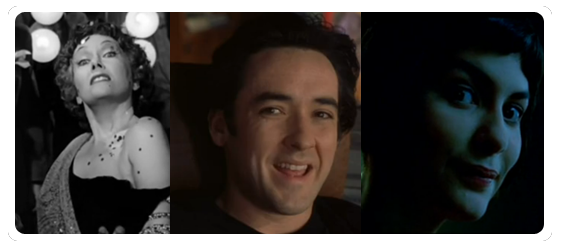Leigh Singer has put together a great supercut of shots from films that break the fourth wall. The term comes from the imaginary “wall” at the front of the stage in a traditional three-walled box set in a proscenium theatre, through which the audience sees the action in the world of the play. Nowadays it refers to the a character looking into the camera an speaking to us in the audience. It can also be called spikingthe lens.
A recent example is in the Netflix series House of Cards, where Kevin Spacey’s character breaks the fourth many times an episode to explain how he is going to control the pour people of Washington.
I asked Leigh about his thoughts on why breaking the fourth wall is works well for some films:
Storytellers have always enjoyed blurring the line between total immersion in a fictional narrative and calling attention to its own construction, be it on stage, in print, even in song. Film & TV offer a fantastic opportunity to exploit this because, at any one time, the viewer is only looking through one restricted point of view – that of the camera.
Anything that happens to draw attention to this – whether the actors talk “to” the camera and thus audience, showing the mechanics of the filmmaking process or the many other ingenious ways available – runs the risk of either taking the viewer out of the story (or substituting for the story – hello, Family Guy) or adding new layers to the action. It’s a conceit irresistible to many, with a strong tradition in comedy – the Marx Brothers, Hope & Crosby, Woody Allen, Mel Brooks. That inclusive, “we’re all in on the joke” feeling can, when done well, make a situation even funnier – like the fantastic Woody Allen / Marshall McLuhan scene from Annie Hall. When done badly, it’s basically asking the viewer to help supply a gag that wasn’t there to begin with. The audience-as-crutch really isn’t a good starting point for a healthy movie.
4th wall breaks can also work in a more dramatic context, much like Brechtian theatre, somehow implicating the audience in the action and allowing a critical distance for questioning. I particularly love the ending of Sunset Blvd., even though I’ve had several people insist it’s not even a valid example. When it goes wrong it can be horrible – there’s a terrible British film called Straightheads, with a gratuitously violent ending, culminating in the lead actor staring at the camera, as if to say, you, yes, you, you’re partly responsible for watching / enjoying / participating in this. To which I answer, I didn’t make this garbage, so don’t blame me, pal.
I have the same issues with both Michael Haneke’s versions of Funny Games. I love many of his other films, but find these to be didactic, patronising lectures. That said, they’re great examples of fourth wall breaks, so it was hard to resist including them in the compilation.
It was a lot of fun to put this together and, with all the suggestions I’ve been sent for additional clips, could easily be a series that runs and runs [I'm saying this while turning to look you directly in the eye, and doing a Belushi/Animal House double eyebrow raise]…

